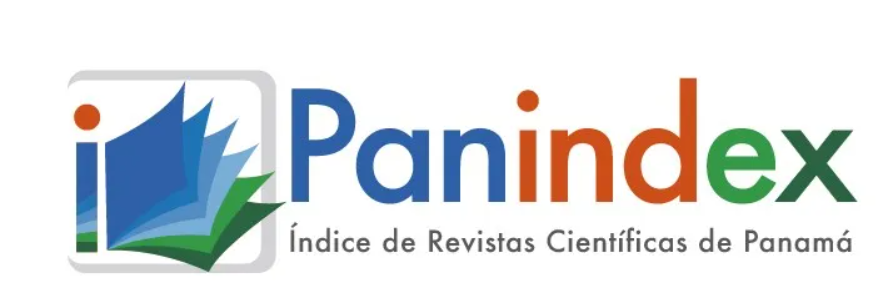The content of the publications and the links suggested in them are the sole responsibility of the authors and not of the METROPOLITAN UNIVERSITY OF EDUCATION, SCIENCE AND TECHNOLOGY (UMECIT) or CATHEDRA magazine. They are protected by international copyright laws just as the UMECIT and CATHEDRA logos, hence their reproduction is totally prohibited
This work is licensed under a Creative Commons Attribution-NonCommercial-NoDerivatives 4.0 International License.
The authors maintain the copyright and transfer the right of the first publication to the journal, with the article registered with Creative Commons Attribution-NonCommercial-NoDerivatives License, which allow others They can download the works published in this magazine and share them with other people, as long as their authorship is recognized, but they cannot be changed in any way nor can they be used commercially.
Authors are recommended to include their work in social networks such as Researchgate and institutional repositories once the article or visible fact has been published on the journal page, without forgetting to include the digital document identifier and the name of the journal.



Abstract
Education is recognized as a human right, fundamental for the personal and social development of every human being. The rights of persons deprived of their liberty are enshrined in various universal and regional human rights instruments. The right to education of this sector of the population is a fully recognized right and is framed from the perspective of human rights. It is education in general, and especially in penal institutions, one of the fundamental elements, which acts as a safeguard of the condition of being human for those people who have ever committed crimes. Accordingly, incarceration, even if it is considered a justified punishment, should not entail an additional deprivation of civil rights. This reality is visible not only in the Panamanian society, but also in the Colombian one, in both countries, although the normative realities are different the essence of the prison is the same and it is looked for according to the international law that the education fulfills a fundamental role in the re-socialization of the person deprived of freedom.
Keywords
References
Asamblea Nacional de la Republica de Panama. (2005). Decreto ejecutivo 393. Panamá.
Congreso de la República. (1997). Decreto 3011. Obtenido de http://www.alcaldiabogota.gov.co/: http://www.alcaldiabogota.gov.co/sisjur/normas/Norma1.jsp?i=1170
Congreso de la Republica de Colombia. (2014). Ley 1709. Obtenido de http://www.alcaldiabogota.gov.co/sisjur/normas/Norma1.jsp?i=56484#61
Congreso de la República de Colombia. (08 de Febrero de 1994). Ley General de Educación. [Ley 115 de 1994]. Bogotá. https://doi.org/10.19053/01227238.5508
Consejo de Estado. (Marzo de 2016). http://consejodeestado.gov.co/. Obtenido de http://consejodeestado.gov.co/documentos/sentencias/29-03-2016_25000234200020150219401.pdf
Coyle, A. (2009). La administración penitenciaria en el contexto de los derechos humanos. Londres: Centro Internacional de Estudios Penitenciarios.
Español, W. (2018). EL QUEHACER DEL DOCENTE EN EL CONTEXTO PENITENCIARIO (Tesis de Doctorado en Ciencias de la Educación). Panamá.: UMECIT. https://doi.org/10.12795/ie.2019.i97.01
Galán, D. (2015). Los módulos de respeto: Una alternativa al tratamiento penitenciario (Tesis Doctoral). Madrid: Universidad Complutense de Madrid. https://doi.org/10.14201/13852
Rangel, H. (2009). Mapa regional latinoamericano sobre educación en prisiones. Notas para el análisis de la situación y la problemática regional. Francia: Centre international d’études pédagogiques (CIEP),.
República de Colombia. (1991). Constitución Politica de Colombia. Bogotá.
República de Panamá. (2014). Constitución Política de la República de Panamá. Defensoria del pueblo. https://doi.org/10.1515/9783598441509.651
Rojas, M. (2006). La creatividad desde la perspectiva de la enseñanza del diseño industrial en la Universidad iberoamericana. México: Universidad Iberoamericana. https://doi.org/10.7764/cdi.40.1009
Scarfó, F., Pérez, F., & Monserrat, I. (2013). Avances en la Normativa del Derecho a la Educación en Cárceles de la Argentina. Educação & Realidade, 71-92. https://doi.org/10.1590/s2175-62362013000100006
Downloads
Publication Facts
Reviewer profiles N/A
Author statements
- Academic society
- Universidad Metropolitana de Educación, Ciencia y Tecnología
- Publisher
- Universidad Metropolitana de Educación, Ciencia y Tecnología




















